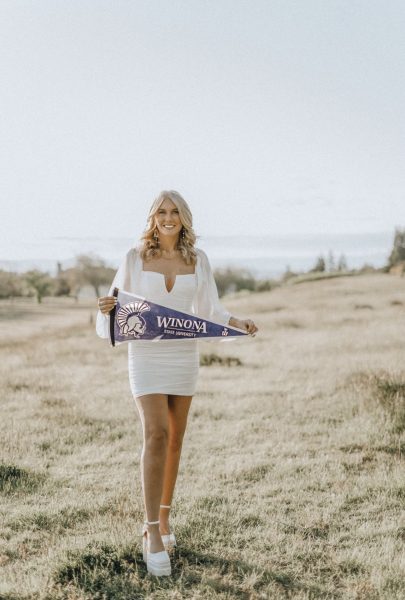
“What do you want to be when you grow up?”
When you are young, people ask you this question. For me, I always wanted to be a teacher. I would line my stuffed animals up in rows on my floor and put my whiteboard in front of them. I would teach my “students” math, English and science, and I would occasionally read to them.
As I got older, my career path became foggy. Although I still enjoyed the idea of teaching, I was open to different industries and career paths.
Fast forward to my first year in college at Seattle Pacific University. I declared my major as “undecided.” Whenever anyone would ask me the question, “What are you going to school for?” I never knew what to say.
I decided the best thing for me to do was take classes in various concentrations to see if there was any topic that was intriguing to me.
I washed out of psychology, but was captivated by the context and the theories of communications that were being taught in my classes. The next quarter, I decided to take a chance and declared communications as my major.
School never came easy for me, but after taking classes that I found interesting, I excelled and found a new passion.
Towards the middle of my fourth year at SPU, people began asking my favorite question: “What are you going to do after you graduate?” I responded as much as I did when I first started college: “I don’t know.” After months of uncertainty, I decided I wanted to pursue my two greatest interests: communication and education.
While sitting in class, I decided to search for “communication master programs” to see if there was any program that interested me. I thoroughly looked through every graduate school that peaked my desire in communication.
I needed to find out if graduate school was a realistic goal for me. I decided to start this process by talking to the professors in my major, as they knew my educational background the best.
I met with two instructors that I had numerous classes with to get their advice on applying — Dr. Sara Shaban and Dr. Matthew Bellinger.
I set up a time for Dr. Shaban and I to get coffee to discuss the graduate school application process and if pursuing a higher degree was a good fit. While sipping on my chai tea latte, Dr. Shaban and I discussed my personal statement and her thoughts on what I had written. She also gave me essential advice on what to add in my resume including relevant classwork and job experience I’ve had.
I wanted to know more about teaching higher education, so Dr. Bellinger and I found a time to meet. Dr. Bellinger discussed his experience with going to college and becoming a professor.
I decided on a first choice at Winona State University in Minnesota and a second choice at the University of Wisconsin. I chose these universities as my top two because the programs were all online, affordable and asynchronous, with focus on newer fields in communication.
A few weeks before it was time to apply, I set up a meeting with the director of the strategic communication masters program at WSU. I asked about the program, application and expectations while she inquired about my reasoning for wanting to go to graduate school.
My application consisted of my undergraduate transcript, proof of my degree, a current resume, a written personal statement and two references from a current or former employer or professor.
Once I submitted my graduate program application, I looked at the computer screen and prayed that I would be accepted. With this being a brand new program, there was no acceptance rate percentages I could look at. All I knew was that my chances were slim, with only 25 available openings into the curriculum.
After I submitted my application, I checked my email daily. I recall the beautiful spring day when I checked my email while heading home after my marketing class. In my inbox there was a new message.
My heart was pounding and my hands were shaking as I attempted to open the email. This was it, all the hard work I had put in, there was a decision waiting for me in that email.
I clicked “open” and read what my fate had in store for me. The email was from WSU and the first sentence stated: “Congratulations, you have been accepted into the strategic communication masters program!”
I yelled to the world, “I got in” and a huge sigh of relief came over me. The months of late nights writing my personal statement and countless hours of emailing and asking my professors questions paid off. I got into my top choice for graduate school.
Going to school and pursuing my master’s degree was one of the best decisions I’ve ever made.
With only two semesters left until I complete my curriculum, I have a new appreciation for my time at SPU. The courses I took in my undergraduate years set me up to succeed in my higher education journey.
Undergraduate programs are a chance for students to find out what they love about their field and what type of career or life path they want to chase after. The most important question to ask yourself when you’re looking into what to do with your life is, “what makes you happy and fulfills your soul?”
Whatever the answer to that question is, follow that path.















































































Kevin Karger • Oct 5, 2023 at 11:08 pm
Excellent, reminds me of an old statement, if you love the work you do, you’ll never work a day in your life!
Keith Jones • Oct 5, 2023 at 7:41 pm
So well said!! So proud of you and the hard work you have put in! Some corporation is going to be so lucky to have you as their leader